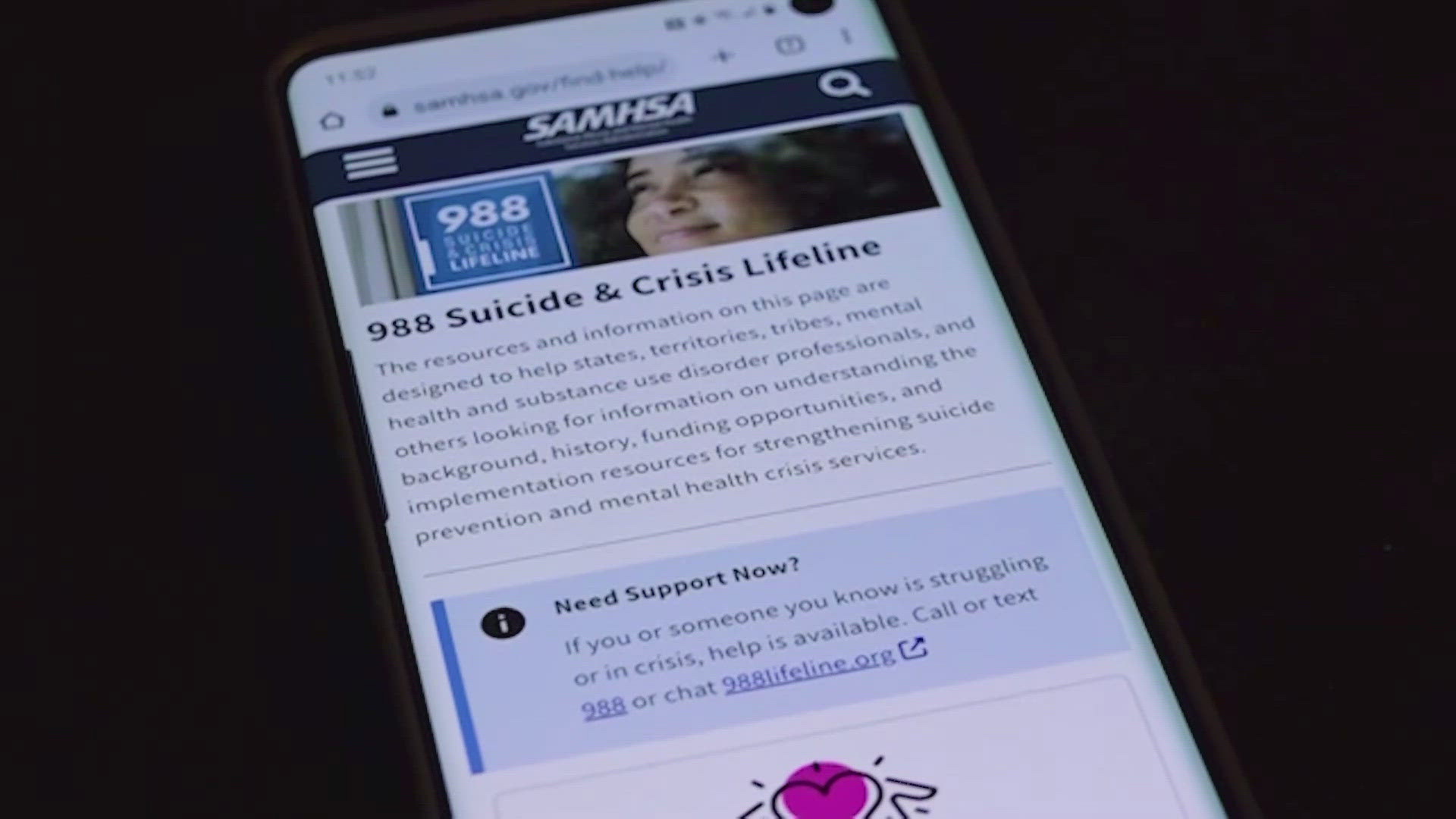SAN ANTONIO — Millions of Americans have sought emotional support by dialing or texting 988 since the rebranded suicide prevention lifeline launched two years ago.
Mental health advocates in Texas have been pushing for a 988 call center to be established in the Alamo City.
Counselors with 988 have answered more than 10 million calls. texts and chats for those struggling with mental health, according to the U.S. Department of Health and Human Services.
People in Bexar County contacting the three-digit number are routed to call centers in Austin, Dallas, Fort Worth, El Paso or Houston, before being redirected to agencies in San Antonio for assistance.
Doug Beach, executive director of National Alliance on Mental Illness (NAMI) Greater San Antonio, said having a 988 call enter closer to San Antonio would be transformational for those in crisis.
“While we’ve taken a big step forward, we still have quite a bit of work to do,” Beach said. “The benefit would be that somebody in San Antonio would be much better equipped and knowledgeable about other resources in the city that exist here that are community agencies and places where people can get help.”
One of the big hurdles comes down to funding. The federal government invested nearly $1.5 billion into 988. Since then, numerous states have enacted legislation to comprehensively fund and sustain operations at the 988 lifeline centers through telecom fees tacked onto phone bills.
Texas is among the many states that have not passed legislation dedicated to 988.
Meanwhile, the Center for Health Care Services (CHCS) continues to be a vital partner in providing 24/7 support for people in Bexar County who initially contacted 988 and need additional help.
CHCS President and CEO Jelynne LeBlanc Jamison, said the Center’s workforce is constantly evaluating and upgrading its safety plan protocol to relay to patients.
“Internally, we at the Center have really been focused on training our workforce for suicide prevention because one attempt is one too many,” LeBlanc said.
LeBlanc praised federal efforts to fund mental health care while also noting the need for support from all levels.
“We need support from the individual citizens to reduce the stigma and we need support from the elected officials as they are working on a bipartisan manner to continue to fund access to care.”
CHCS operates a 24/7 crisis line: 1-800-316-9241.

